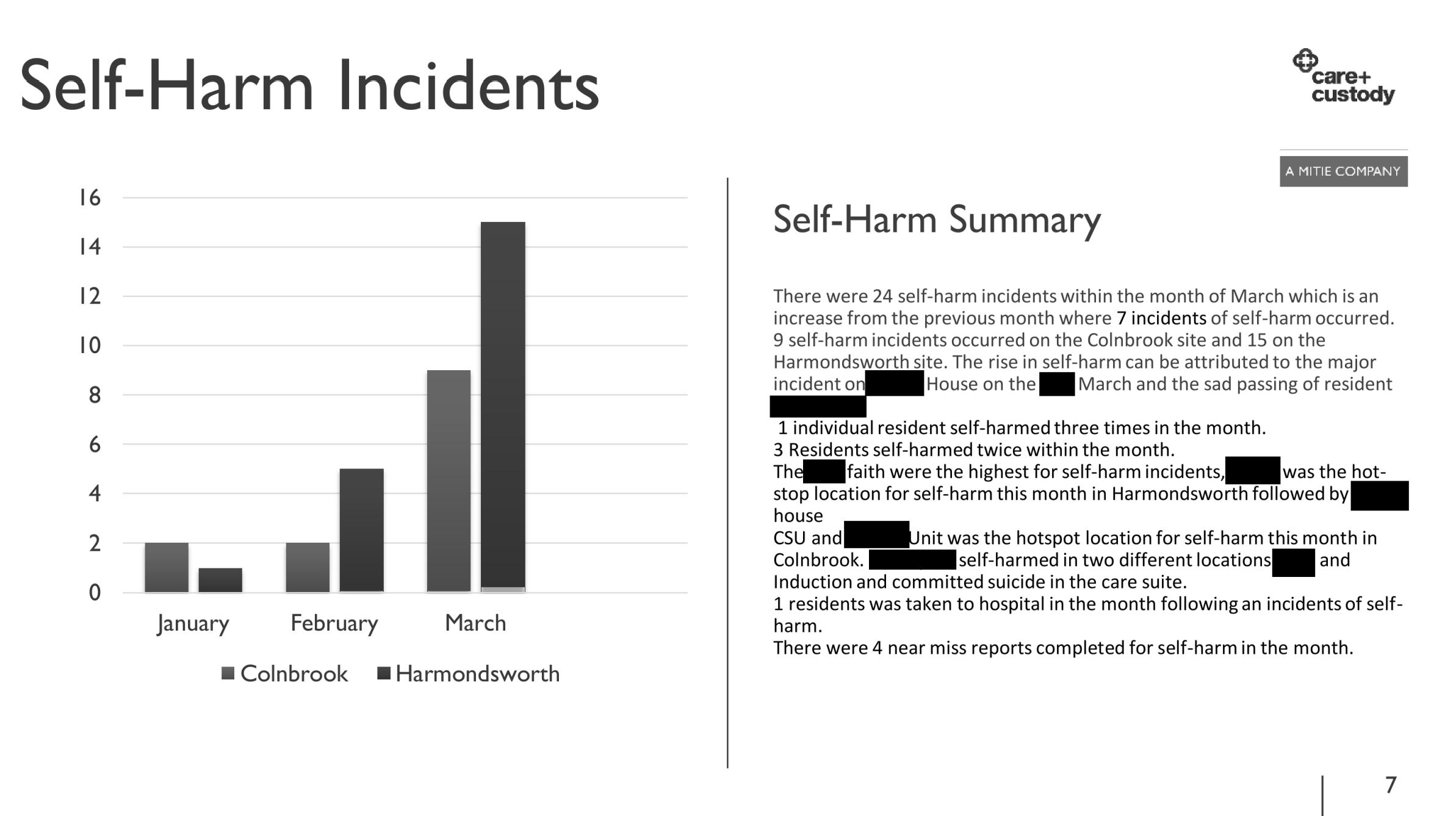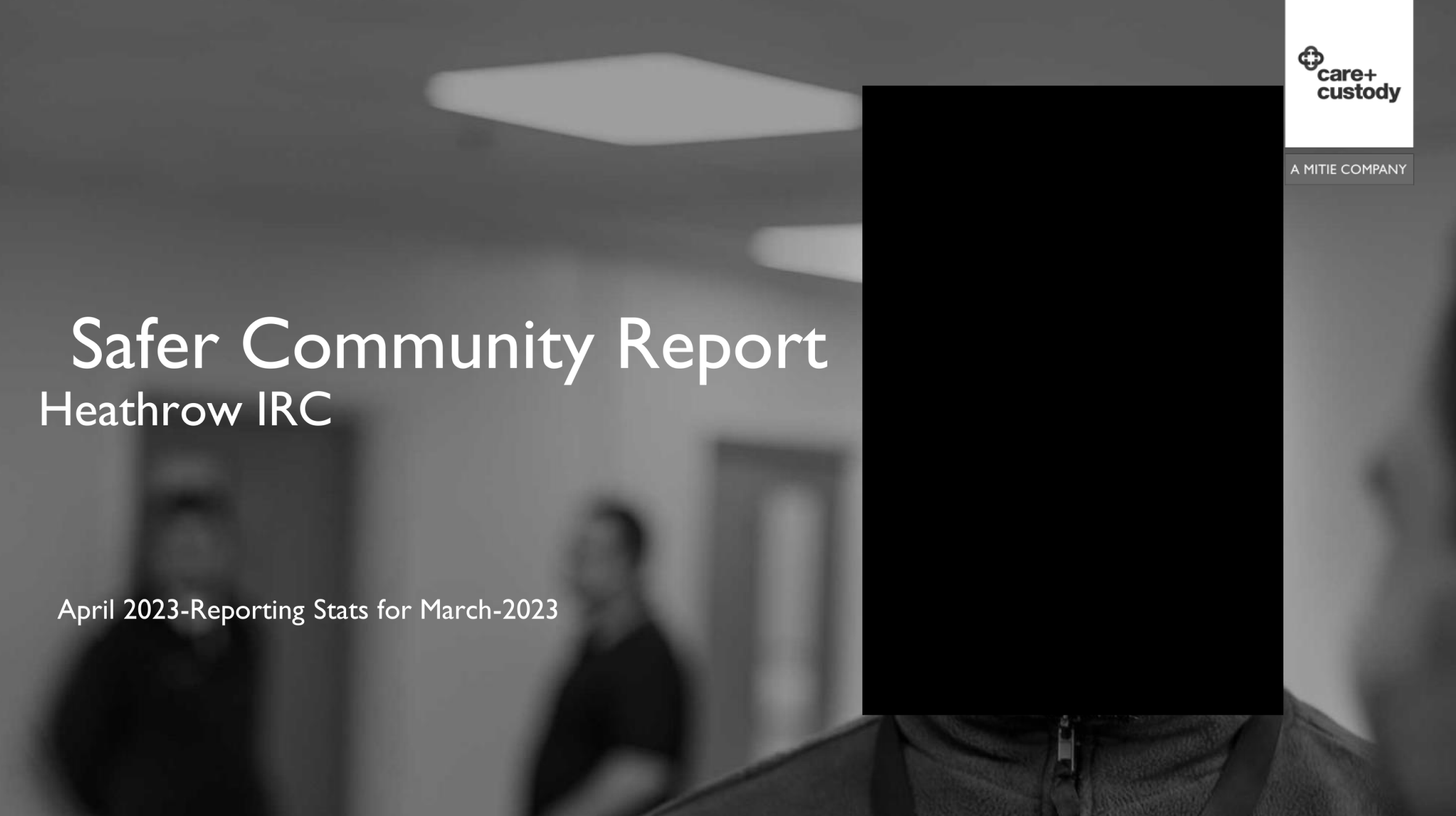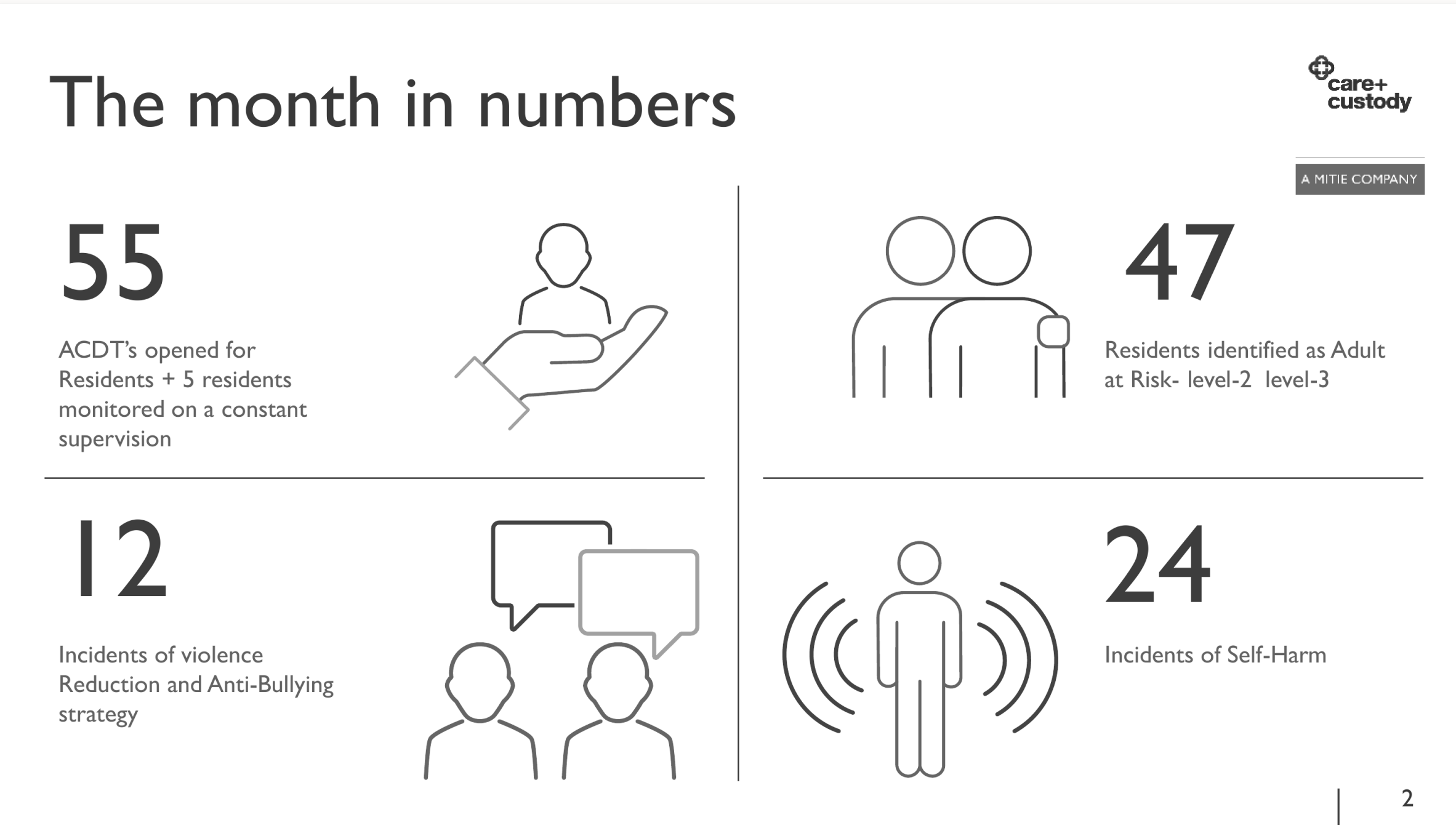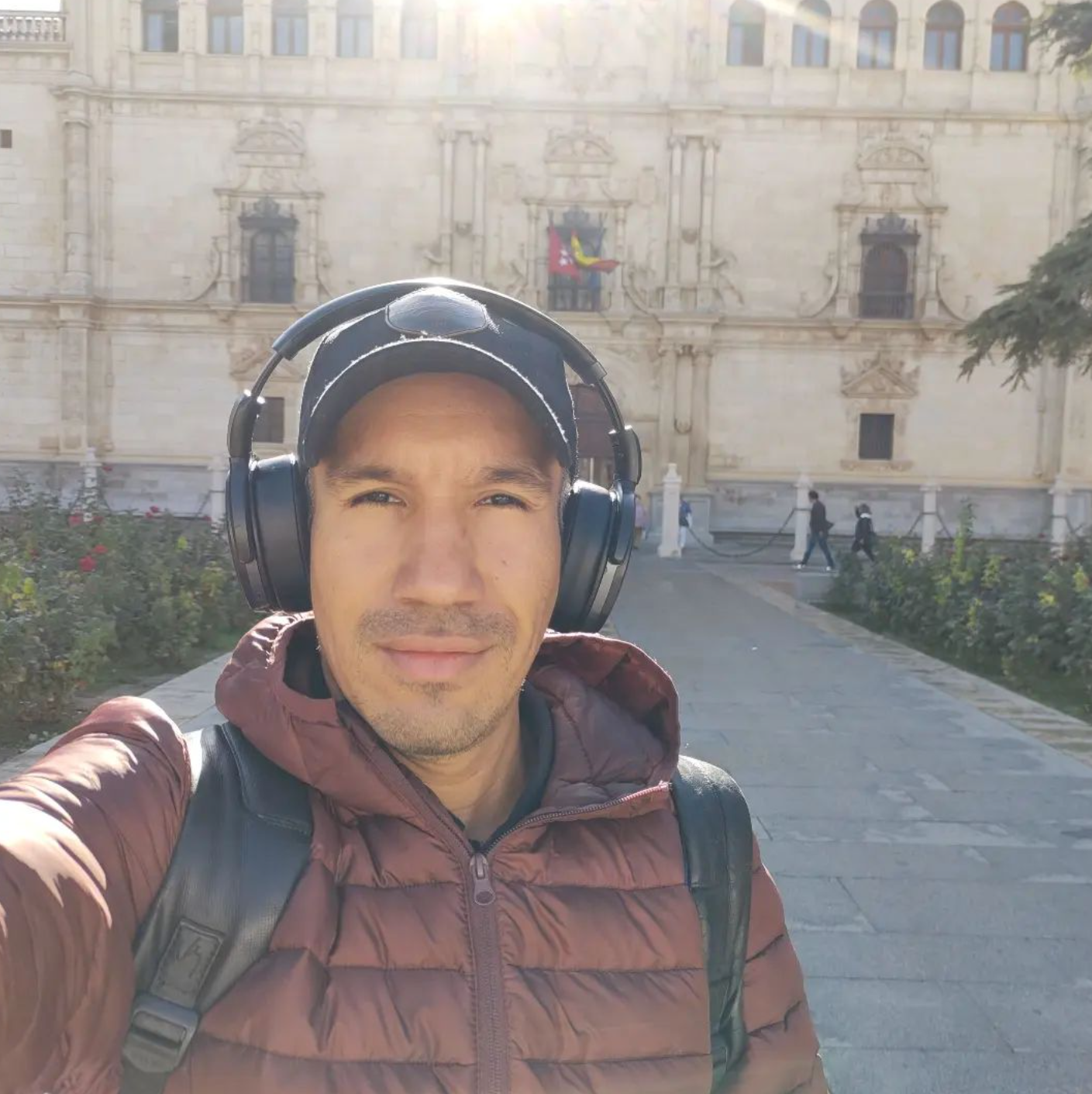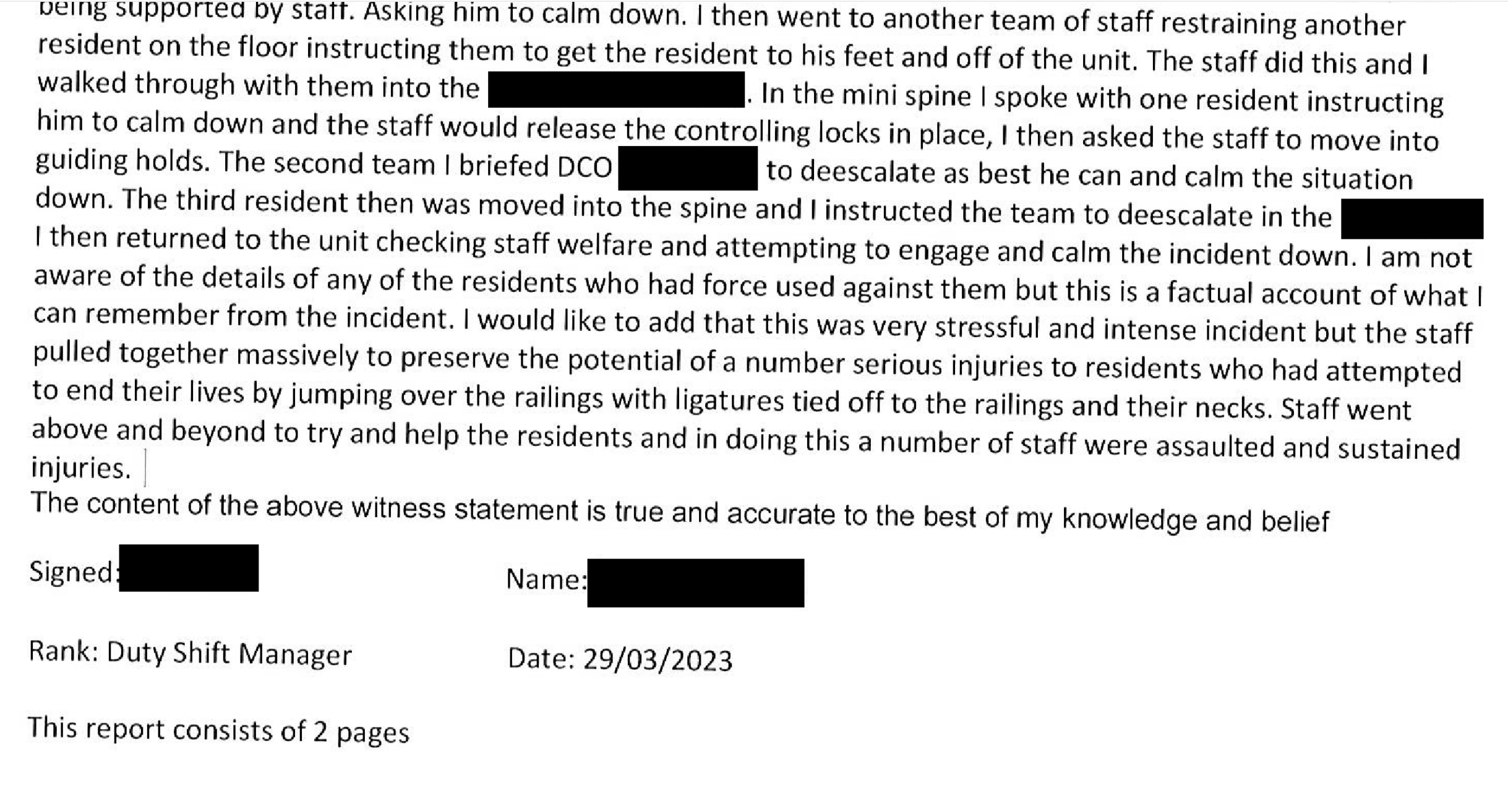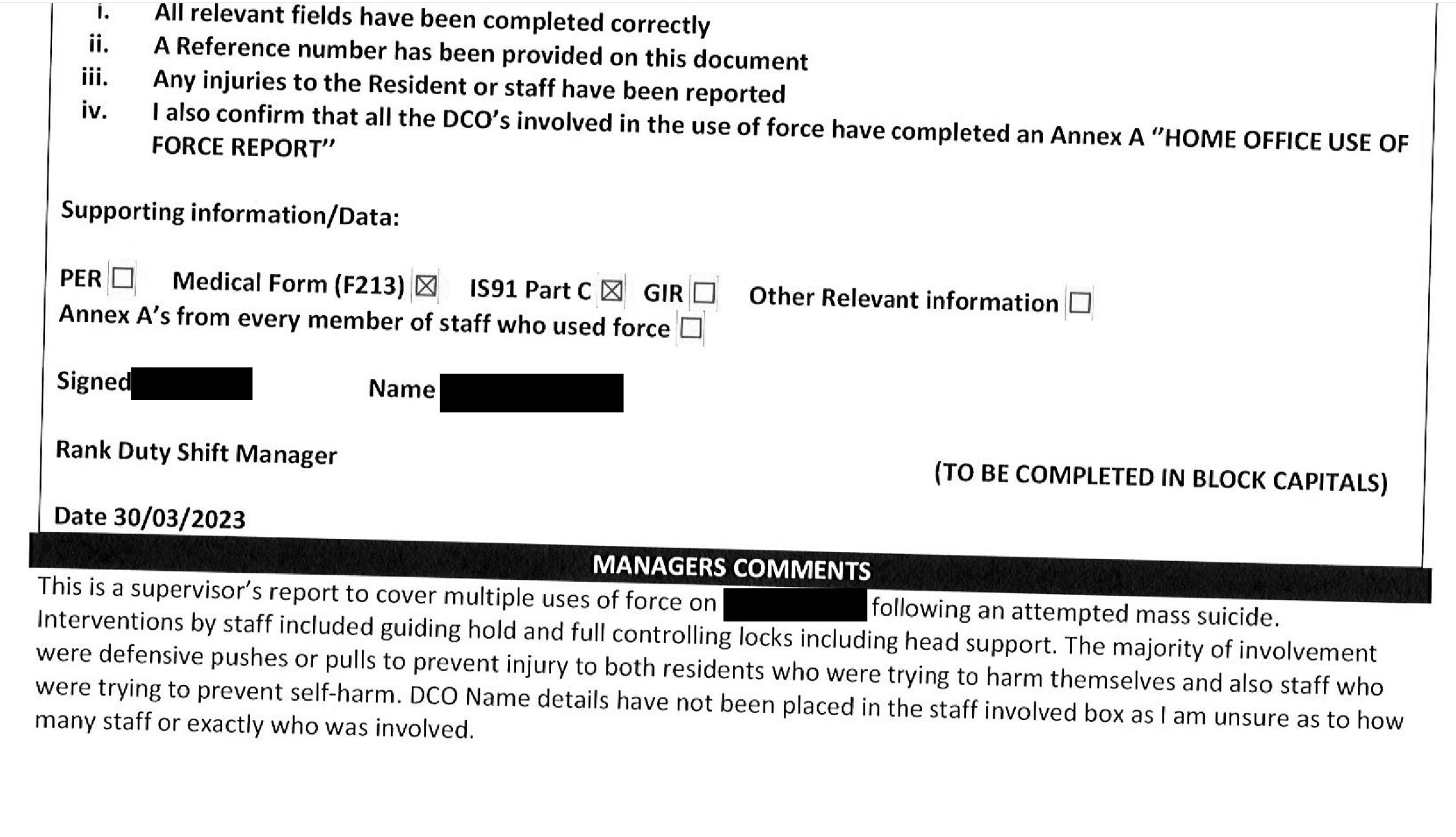Revealed: ‘Mass suicide attempt’ at immigration centre after detainee death
Published on 14 September 2023
Image: Adrian Dennis/AFP via Getty Images / Instagram
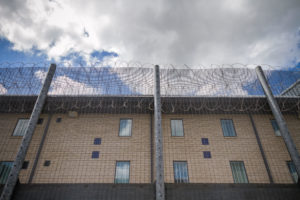
The full horrors of what security officers termed an "attempted mass suicide" are laid bare in internal documents
Reports Aaron Walawalkar for Liberty Investigates and Open Democracy. Edited by Harriet Clugston.


